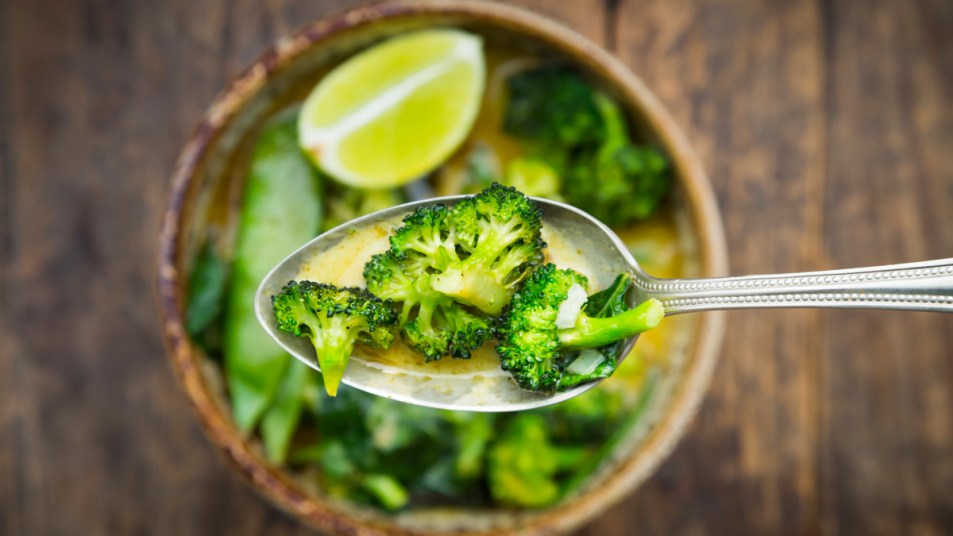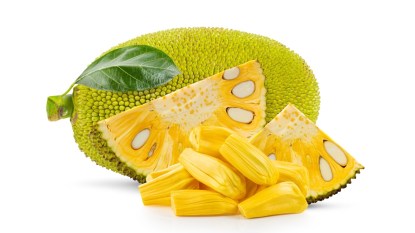Eating More of These Foods Will Help Keep Your Muscles Strong As You Age

It’s no great secret that vitamin C is a powerhouse for immune defense. Whenever we come down with a cold, Emergen-C packets, orange juice, and vitamin C gummies are the first products we grab from the grocery store.
However, a steady intake of vitamin C, and not just a boost of it when you’re feeling run down, is more likely to strengthen your immunity and your body. A study led by British researchers and published by the Journal of Nutrition suggests that a daily dose of this powerful antioxidant may help reduce muscle loss.
The study found that older adults who consumed more vitamin C on a regular basis had a higher muscle mass as compared to other participants. Women in particular showed the biggest change: Women who had the most vitamin C in their blood out of all study groups had significantly higher levels of skeletal muscle mass.
The Importance of the Muscle Mass
Why do you need to worry about muscle mass? As you age, you begin to lose muscle. If you are over 50, you may lose up to one percent of your skeletal muscle mass each year. This can lead to weakness and sarcopenia, a disease characterized by a progressive and significant loss of muscle mass and muscle function.
Sarcopenia and muscle loss in general often cause older adults to exercise less. A sedentary lifestyle leads to even more muscle loss, lower stamina, and a poorer quality of life. It can also sow the seeds for other serious health issues, such as type 2 diabetes and physical disabilities.
As a result, it is important to listen to research that provides suggestions for muscle loss prevention. The study published by the Journal of Nutrition offers strong evidence that you can improve your muscle health by eating the recommended serving of vitamin C every day.
Why Vitamin C May Improve Your Muscle Health
While vitamin C plays a variety of roles in boosting our overall health, it may be especially important for the building and repairing of muscles. The nutrient is vital to the creation of collagen, the most abundant protein in our bodies. Collagen is found in tendons, ligaments, skin, and muscles, and is used to rebuild damaged or weakened muscles.
Vitamin C is also used in the synthesis of carnitine, a compound that helps create the energy your body needs to perform physical activity. Carnitine drives the metabolism of long-chain fatty acids, which are oxidized, or burned, to produce energy.
In addition, vitamin C improves the absorption of nonheme iron, which is mainly found in plant foods. Iron is a building block of red blood cells and a component of myoglobin, a protein that carries and stores oxygen in muscle tissues.
As a result, vitamin C may improve your muscle health by contributing to a wide range of muscular functions. Without it, you may develop symptoms of muscle weakness, such as fatigue and joint or muscle pain.
Are You Taking Too Little or Not Enough?
Reaching your recommended daily allotment of vitamin C is easier than you think. Oranges and grapefruits are famous for their high vitamin C content, but many other fruits and vegetables contain high doses of the nutrient as well. Some vegetables, such as red pepper, have even more vitamin C than certain citruses.
According to the National Institutes of Health, adult women should aim to consume 75 milligrams of vitamin C per day. Women who are pregnant should consume at least 85 milligrams and women who are breastfeeding should consume 120 milligrams.
These daily allotments might seem low, especially since certain supplements contain over 700 milligrams of vitamin C in one dose. You are not likely to develop issues from a supplement, however, as the upper limit for the nutrient is 2,000 milligrams.
While a high dose of vitamin C is unlikely to be harmful, it may cause you to experience adverse side effects such as nausea, diarrhea, stomach cramping, and bloating. Taking 2,000 milligrams on a daily basis may also increase your risk of developing kidney stones. Be sure to check with your doctor if you are unsure of how much vitamin C to take.
Fortunately, just one or two servings of fruits and vegetables are enough to cover your bases. Consuming one cup of chopped broccoli (81.2 mg) and one medium-sized orange (69.7 mg) would easily do the trick. You might also try sprucing up your meals with:
- Red pepper (190.3 mg of vitamin C in one cup, chopped).
- Green pepper (119.8 mg in one cup, chopped).
- Strawberries (84.7 mg in one cup, whole berries).
- Grapefruit (76.8 mg in one medium-sized fruit).
- Pineapple (78.9 mg in one cup, diced).
- Kiwi (about 64 mg in one fruit).
- Honeydew (30.6 mg in one cup, diced).
- Tomatoes (20.4 mg in one cup of cherry tomatoes).
The key to consuming enough vitamin C is to think of this powerful nutrient as not just a cold and flu rescue, but a dietary staple. Though this vitamin cannot replace regular physical activity, it may give your muscle health a boost, raise your energy levels, and improve your quality of life.
This article originally appeared on our sister site, Woman’s World.













